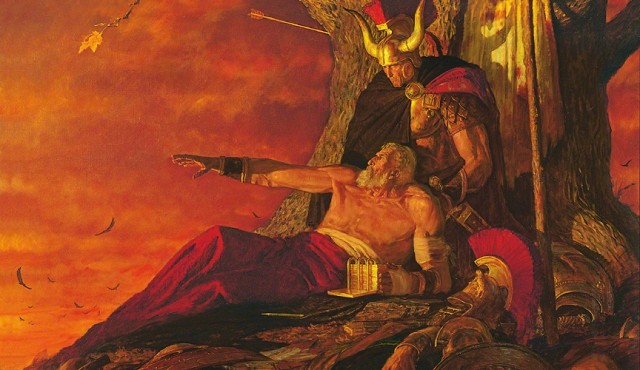To accompany your Come Follow Me study for the week of October 28 to November 3
You may enjoy any or all of the following related videos:
You would also enjoy scanning the related commentary in the Book of Mormon Institute Student Manual at:
If you would like a Kahoot game related to this material which you could use for personal study or use with your family or your class, click here: https://create.kahoot.it/share/mormon-1-6/e7b38850-aade-4a23-bc65-6ef759389025. To use it with a group, after clicking on this link, you will need to log into Kahoot, creating a free account if you have not done so previously, then click on the blue “Host Live” button or the gray “Assign” button, depending on how you wish to use the Kahoot. Some of the Kahoot questions may presuppose that the player has read through the suggested answers to the following Points to Ponder and at least has browsed the Institute student manual as well.
Points to Ponder in Mormon 1-6
1. Tom and Jill, who are planning to marry in June, following Tom’s graduation, are contemplating job offers. The choices seem to be a $90,000 per year position in Atlanta, a $150,000 position in New York City, or a $55,000 per year job in Utah. Tom grew up in the Atlanta and Jill’s family lived in New York for a time, but they are reluctant to see their future children grow up in either city. Each has an inactive brother, due in part, they feel, to the unwholesome environment. Drugs and pornography are common‑place in the schools. Teachers in many cases seem to ridicule those with faith or old‑fashioned moral standards. The extra $40,000 to $80,000 per year seems very attractive, but Tom and Jill realize you can’t put a price on their children’s eternal salvation. They respect your opinion. What would you advise them? What does the story of Mormon have to do with all this?
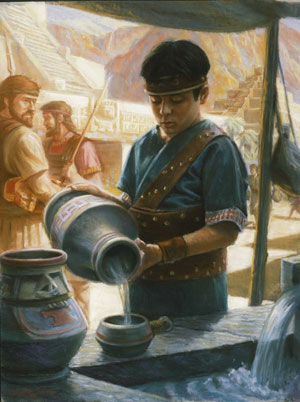
2. What specific qualities in Mormon led Ammaron to pick him at the age of ten as the future historian of his people? According to Mormon, why did the Savior appear to him when he was fifteen? Why did the Nephites appoint Mormon as their commander-in-chief at the same age? Who does Mormon remind you of in this respect?
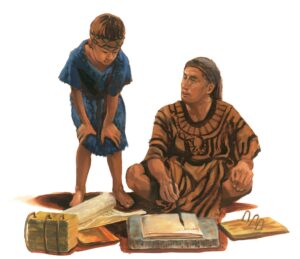
3. How sober is it necessary to be in order to enjoy the gifts of the Spirit? Aren’t many of our general authorities fun‑loving men? (Mormon 1:2, 15)
4. What significance could there be in the fact that Mormon mentions not only the Nephites and Lamanites in 1:8 but also the Jacobites, Josephites, Zoramites, Lemuelites, and Ishmaelites?
5. What correlation do you see between general wickedness and the occult sciences? Does an increased interest in spiritualism signal a decline in public morality? (1:19)
6. Why does Mormon 2:10 tell us that “the Nephites began to repent of their iniquity,” when 2:13 tell us “their sorrowing was not unto repentance”? What is the difference between repentance and cessation from sin? Between repentance and sorrow for sin?
7. Though Ammoron had told Mormon to get the plates of Nephi from the hill Shim when he was about 24 years old (1:3), Mormon didn’t do it until he was 34 (2:16-17). Why?
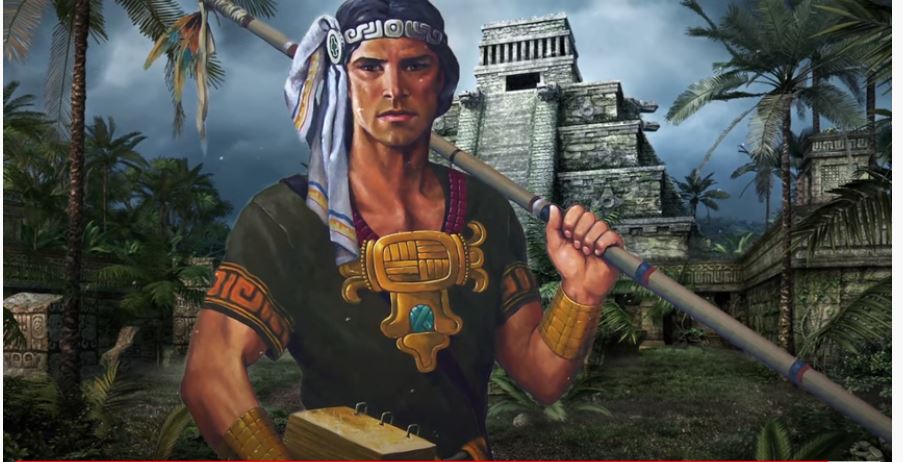
8. If Mormon was forbidden by the Lord in 1:16 to preach, why does 3:2‑3 find him preaching again? What had changed?
9. Why did Mormon resign as commander of the Nephite armies in 3:9‑11, when he had led them previously in times of great wickedness when even the Lord couldn’t help them? Why did he later reconsider his resignation and lead them again? (5:1)
10. What, in Mormon’s words, were the essential purposes of the Book of Mormon to be? How well does it accomplish those purposes, in your opinion? (3:20-21; 5:14‑15)
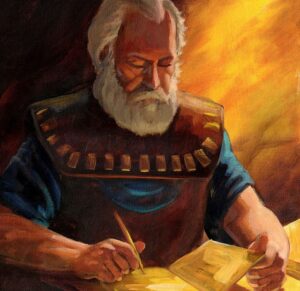
11. What do you find most pathetic about the destruction chronicled by Mormon?
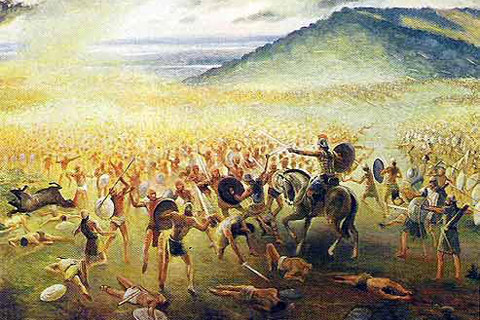
12. To what specific blessings are we, as Gentiles, entitled as heirs to the promises originally made to the Nephites? (5:19)
13. Mormon 6:7 speaks of “that awful fear of death which fills the breasts of all the wicked.” What difference have you personally noted among the attitudes of people toward dying? Did those who feared it and those who did not differ in other obvious respects?
14. What other points in today’s reading are worth further mention?
Possible Answers to Points to Ponder in Mormon 1-6
1. Tom and Jill, who are planning to marry in June, following Tom’s graduation, are contemplating job offers. The choices seem to be a $90,000 per year position in Atlanta, a $150,000 position in New York City, or a $55,000 per year job in Utah. Tom grew up in the Atlanta and Jill’s family lived in New York for a time, but they are reluctant to see their future children grow up in either city. Each has an inactive brother, due in part, they feel, to the unwholesome environment. Drugs and pornography are common‑place in the schools. Teachers in many cases seem to ridicule those with faith or old‑fashioned moral standards. The extra $40,000 to $80,000 per year seems very attractive, but Tom and Jill realize you can’t put a price on their children’s eternal salvation. They respect your opinion. What would you advise them? What does the story of Mormon have to do with all this?
Mormon shows that it is possible for a young person to grow up righteous even in the midst of a corrupt society. Tom and Jill should probably base their decision on factors other than the presumption that they will find in Utah a spiritual safety for their family which is not available elsewhere.
You may enjoy reading the related article at https://knowhy.bookofmormoncentral.org/knowhy/what-do-we-know-about-mormons-upbringing and the accompanying video:
2. What specific qualities in Mormon led Ammaron to pick him at the age of ten as the future historian of his people? According to Mormon, why did the Savior appear to him when he was fifteen? Why did the Nephites appoint Mormon as their commander-in-chief at the same age? Who does Mormon remind you of in this respect?
Ammoron picked him because of his sobriety and being “quick to observe” (which here means quick to obey, not that Mormon had great powers of perception.) The Lord visited him because he was “somewhat of a sober mind.” The Nephites evidently appointed him as their commander because of his size and physical strength. In this respect, he sounds much like Nephi.
3. How sober is it necessary to be in order to enjoy the gifts of the Spirit? Aren’t many of our general authorities fun‑loving men? (Mormon 1:2, 15)
While a sense of humor is not only appropriate but perhaps even essential to successful leadership, light-mindedness, especially with regard to sacred things, is a great impediment to spirituality. The difference may be difficult to describe in a few words, but it is real.
4. What significance could there be in the fact that Mormon mentions not only the Nephites and Lamanites in 1:8 but also the Jacobites, Josephites, Zoramites, Lemuelites, and Ishmaelites?
See an interesting article by Diane E. Wirth at http://www.bmaf.org/articles/seven_primordial_tribes_mesoamerica__wirth
5. What correlation do you see between general wickedness and the occult sciences? Does an increased interest in spiritualism signal a decline in public morality? (1:19)
Interest in the occult seemed to increase during Nephite times of wickedness. The two are probably similarly correlated today. Though somewhat old, the following data seem to indicate a trend:
| Which if any of the following do you believe at least to some degree? | ||
| Belief | 1997 | 1976 |
| Spiritualism | 52% | 12% |
| Faith healing | 45% | 10% |
| Astrology | 37% | 17% |
| UFOs | 30% | 24% |
| Reincarnation | 25% | 9% |
| Fortune telling | 14% | 4% |
One writer noted, “In France there are more mediums today — that is, spiritualists–than there are pastors. Someone has said that France has become an occult nation. Unfortunately, in America today, we see the same sad thing happening. Our nation is being given up to the occult. The psychic explosion taking place over television today is one more indication that our nation is being given over to the occult, the fortune tellers, and the spiritualists.”
One study showed that two-thirds of teenagers were experimenting with psychics and the occult. A 2010 survey found there were more people involved in the occult in America than there were Muslims or Jehovah’s Witness. Wicca was recently deemed the fastest-growing religion in America. And one student of the subject estimated there were 4 million Satanists in the United States. It seems clear that the US and much of the world is following the lead of the ancient Nephites in this respect.
6. Why does Mormon 2:10 tell us that “the Nephites began to repent of their iniquity,” when 2:13 tell us “their sorrowing was not unto repentance”? What is the difference between repentance and cessation from sin? Between repentance and sorrow for sin?
In 2:10 they seem to be sorrowing for the consequences of sin, not for the sin itself. True repentance involves not only stopping the sin but feeling a deep sorrow for having committed it in the first place. Either, without the other, would be incomplete.
7. Though Ammoron had told Mormon to get the plates of Nephi from the hill Shim when he was about 24 years old (1:3), Mormon didn’t do it until he was 34 (2:16-17). Why?
He had been busy leading the Nephite armies in their war with the Lamanites for the preceding nineteen years.
8. If Mormon was forbidden by the Lord in 1:16 to preach, why does 3:2‑3 find him preaching again? What had changed?
By 3:2-3 thirty-three years had passed since the Lord told Mormon not to preach, and a new generation had arisen which had not so willfully rebelled as their predecessors.
9. Why did Mormon resign as commander of the Nephite armies in 3:9‑11, when he had led them previously in times of great wickedness when even the Lord couldn’t help them? Why did he later reconsider his resignation and lead them again? (5:1)
He resigned not because of the general wickedness of his troops but because of their specific intent to wage a war of aggression and vengeance. He assumed command once again after the Nephites had been beaten so soundly by the Lamanites that they were necessarily once again fighting only defensive battles, in which Mormon could morally participate.
10. What, in Mormon’s words, were the essential purposes of the Book of Mormon to be? How well does it accomplish those purposes, in your opinion? (3:20; 5:14‑15)
a. To convince readers of a future judgment (3:20)
b. To serve as an additional witness that Jesus is the Christ (3:21)
c. That the latter-day descendants of the Nephites and Lamanites might more fully believe the gospel and have the covenant fulfilled which the Lord made with them. (5:14-15)
So far as how well it accomplishes those purposes, the Book of Mormon certainly does its part. How effective it is depends on the receptivity of the reader.
See the related article at https://knowhy.bookofmormoncentral.org/knowhy/what-was-mormons-purpose-in-writing-the-book-of-mormon and the accompanying video:
11. What do you find most pathetic about the destruction chronicled by Mormon?
Your choice. Perhaps that it didn’t have to happen. The Nephites had had every advantage and blessing. They had been visited by the resurrected Savior. They had had a golden age of peace and prosperity. They had no external enemies. And they lost it all because of their own pride and wickedness.
12. To what specific blessings are we, as Gentiles, entitled as heirs to the promises originally made to the Nephites? (5:19)
Freedom and prosperity on this land if we will serve God and keep his commandments.
13. Mormon 6:7 speaks of “that awful fear of death which fills the breasts of all the wicked.” What difference have you personally noted among the attitudes of people toward dying? Did those who feared it and those who did not differ in other obvious respects?
The difference seems most pronounced at funerals. There is typically inconsolable sorrow at funerals for those with no religious foundation. But at the funerals of the faithful there is generally a peace and joy that transcends the sorrow felt at the passing of the loved one.
14. What other points in today’s reading are worth further mention?
Perhaps we could include the following:
- The value of making an abridgment of our personal histories so that our posterity will more readily find the spiritual highlights.
- We cannot have the gifts of the Holy Ghost without faith and righteousness. (1:14)
- We can often see future greatness in even very young people. (1:2, 15)
- The Lord will not support the unrighteous in battle. (2:26)
- We should leave vengeance to the Lord. (3:15)
- The Lord uses the wicked to punish the wicked. (4:5)
- The Cumorah of Mormon 6 is probably not the same hill from which Joseph Smith took the plates, nor does the Book of Mormon claim it to be. For one thing, it is not next to a narrow neck of land. For another, it hardly has the size to provide refuge for a group of twenty-four survivors who could survey hundreds of thousands of slaughtered countrymen at the bottom of the hill.
See John Sorenson’s An Ancient American Setting for the Book of Mormon for reasons many Latter-day Saints think that the Cerro Vigia near Santiago Tuxtla, Mexico, is a reasonable candidate for the hill where both the Nephites and Jaredites met their end and where Mormon buried his collection of plates with the exception of those he gave to his son, Moroni.

The Book of Mormon plainly tells us that Mormon buried many plates in the hill Cumorah, but it specifically tells us he did not so bury the plates from which our Book of Mormon was translated. Those he gave to Moroni, and the book says nothing about where Moroni may have buried them. The fact that we have come to call a small hill in New York the Hill Cumorah does not mean it has anything to do with the hill the Nephites called by that same name.
See the following video for more information and thoughts on this subject.
You may also enjoy Jeff Lindsay’s related article at: https://www.jefflindsay.com/lds/book-mormon-geography/
